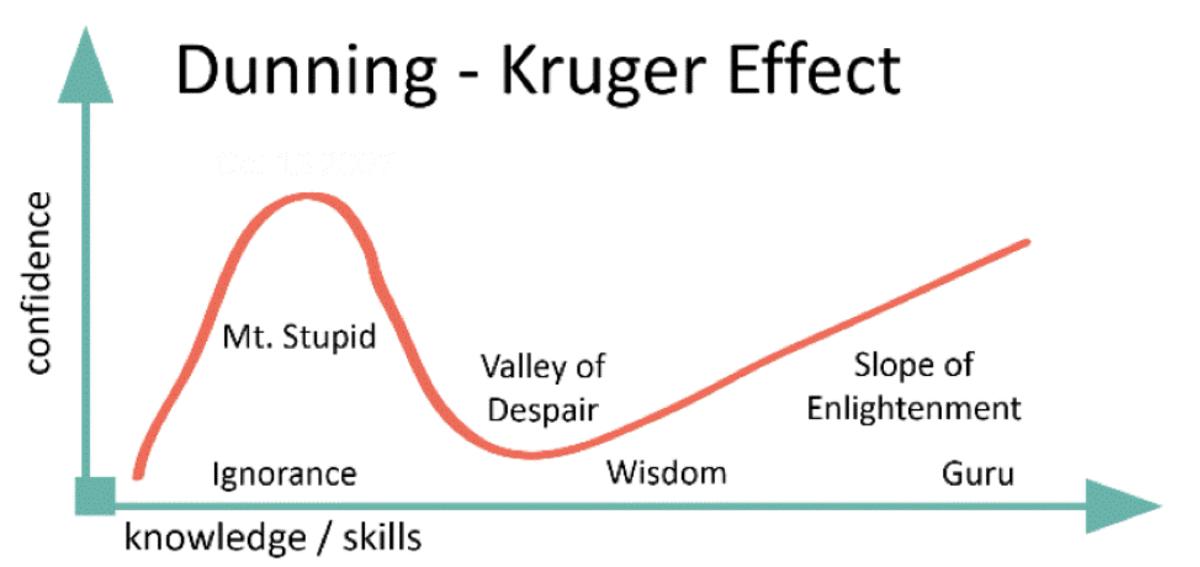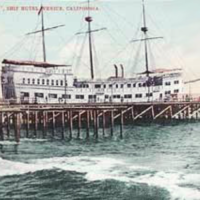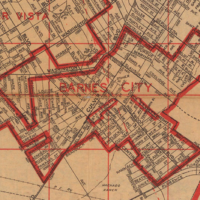 In Act V Scene I of As You Like It, the court jester, Touchstone, lectures William, a countryman and minor character, “The fool doth think he is wise, but the wise man knows himself to be a fool.” Four centuries later, in 1999, two American social psychologists, David Alan Dunning, and Justin Kruger decided to put Touchstone’s literary hypothesis to the test. They were inspired by the case of McArthur Wheeler, a recently apprehended bank robber, who had covered his face with lemon juice, being all but certain that since lemon juice was used in invisible ink, the lemon juice would render him invisible.
In Act V Scene I of As You Like It, the court jester, Touchstone, lectures William, a countryman and minor character, “The fool doth think he is wise, but the wise man knows himself to be a fool.” Four centuries later, in 1999, two American social psychologists, David Alan Dunning, and Justin Kruger decided to put Touchstone’s literary hypothesis to the test. They were inspired by the case of McArthur Wheeler, a recently apprehended bank robber, who had covered his face with lemon juice, being all but certain that since lemon juice was used in invisible ink, the lemon juice would render him invisible.
The trouble with ignorance is it can feel like expertise.
The result of their studies gave us the Dunning-Kruger Effect, which may be summarized by stating that in any field of endeavor, less competent people enjoy a sense of illusory superiority over competent people, being unaware of standards of performance of that field. At the same time, more competent people are likely to rate themselves inferior. To paraphrase Dunning, “The trouble with ignorance is it can feel like expertise.”
For more on the Dunning-Kruger Effect, go here:
https://en.wikipedia.org/wiki/Dunning–Kruger_effect
Or here:
The Dunning Kruger effect accounts for a number of cognitive incongruities, such as a study where 94% of college professors rated themselves above average at teaching college courses. Presumably, the 94% cohort of “above average” college professors, bastioned by illusory superiority, would not focus on improving their already superior teaching skills. The more objective 6%, recognizing their shortcomings, might work hard to improve, but there will be nobody to validate them. Hence poor teachers will self-congratulate while improving teachers will surpass their “betters” but still feel inferior. Excellence will, therefore, go unacknowledged.

To win markets and elections, court the people on “Mount Stupid,” if only by virtue of its large population. Those in the “Valley of Despair” are few in number and must be ridiculed, de-platformed, called out, and silenced, lest they continue improving and eventually point out their emperors have no clothes.
The Dunning-Kruger Effect is sometimes called the Lake Wobegon Effect, drawing from Garrison Keillor’s fictional Minnesota town of “Lake Wobegon, where the women are strong, the men are beautiful, and all the children are above average.” While outside Lake Wobegon, this is mathematically impossible, the flawed reasoning is invaluable to authoritarians. If you want to take outsmart people, consider the graph below. To win markets and elections, court the people on “Mount Stupid,” if only by virtue of its large population. Those in the “Valley of Despair” are few in number and must be ridiculed, de-platformed, called out, and silenced, lest they continue improving and eventually point out their emperors have no clothes. Shorten attention spans. Pump up confidence in the masses without commensurate skills. Give every athlete a trophy and every student a diploma (after they pay you handsomely.) Then tell smart people they’re stupid, and call experience obsolescence.
So now we have three tools people in power like to use.
- Milgramming is the abuse of authority to change good people into bad people.
- Gaslighting is the abuse of authority to make smart people think they are crazy.
- Dunning-Krugering is the abuse of authority to transfer confidence, and therefore power, from the competent to the incompetent.
This is how authorities steamroll civilizations.
Next up, we’ll take a look at some examples.





